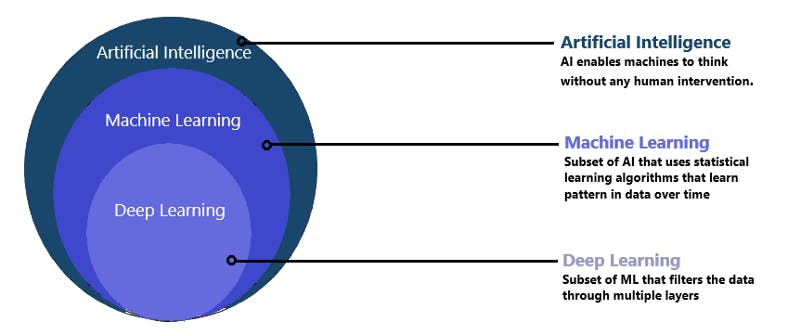What is Machine Learning?
Machine Learning:
Machine learning is turning things (data) into numbers and finding patterns in those numbers. We can use ML for literally anything as long as you can convert it into numbers and program it to find patterns. Literally, it could be anything any input or output from the universe.

Again Machine Learning is divided into two parts:
Basically, machine learning teaches a computer how to perform a task without explicitly programming it to perform the said task instead of feeding data into an algorithm to gradually improve outcomes with an experience similar to how organic life learns.
How does Machine learning work in the backend?
Step 1: Acquire and Clean up data
Lots and lots of data the better
Data needs to have some kind of signal to be valuable to the algorithm for making predictions.
To transform raw data into features that better represent the underlying problem
Step 2: Separate data into a training and testing set
the training data is fed into an algorithm to build a model
the testing data is used to test the accuracy or error of the model to check how it performs on unseen data
Step 3: Choose an Algorithm
Basically, you can't just train every data with the same model. Every problem so it needs different models
Like for predicting numbers we use REGRESSION. (Eg: Predicting Stock Prices)
Predicting between two things we use CLASSIFICATION (Eg: Predicting the between cat and dog)
Supporting Frameworks(Softwares):
- numpy
- pandas
- matplotlib
- scikit-learn
- tensorflow
Conclusion:
machine-learning is a model which is just a file that takes some input data in the same shape that it was trained on then spits out a prediction that tries to minimize the error that it was optimized for it can then be embedded on an actual device or deployed to the cloud to build a real world product
